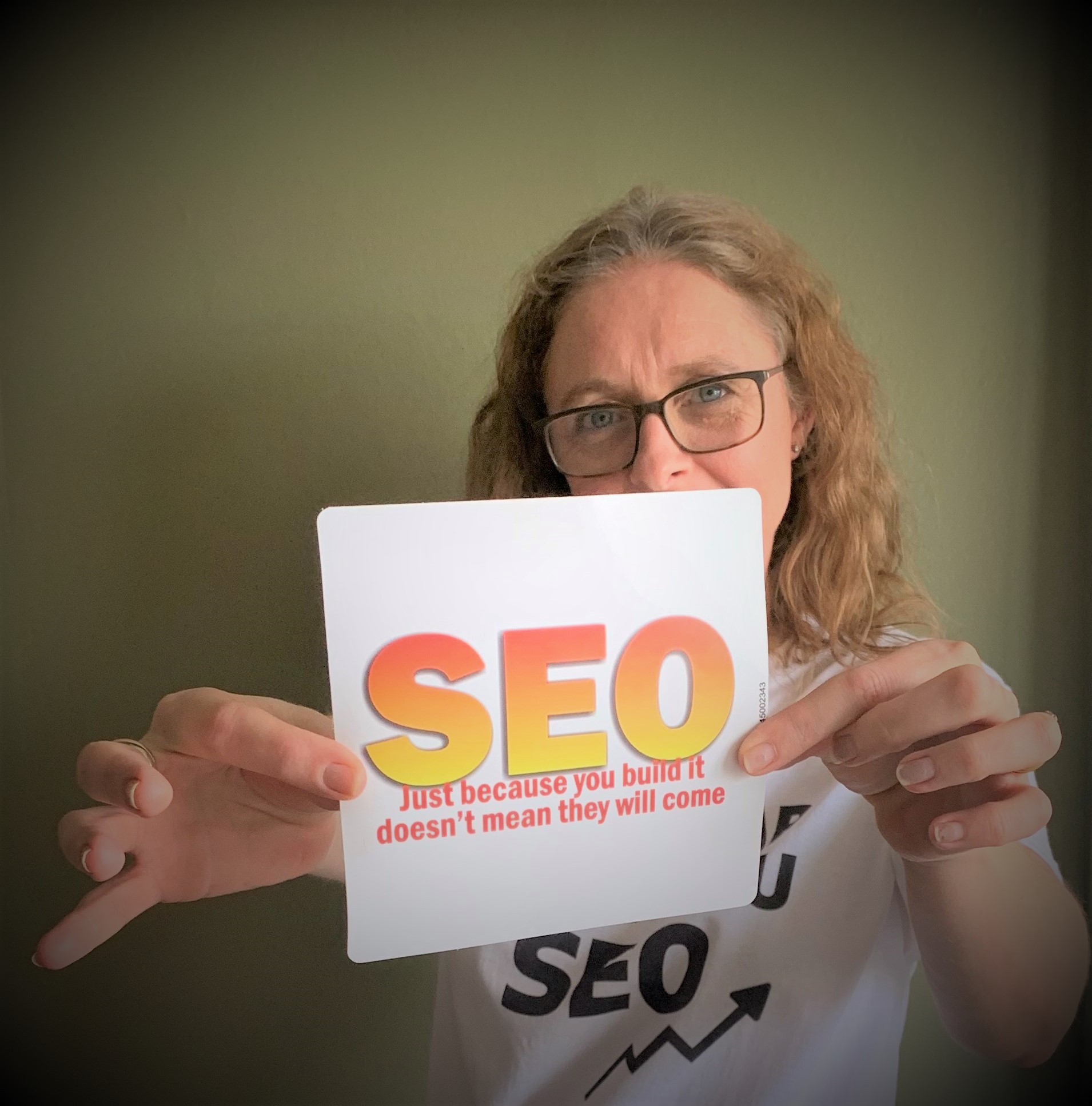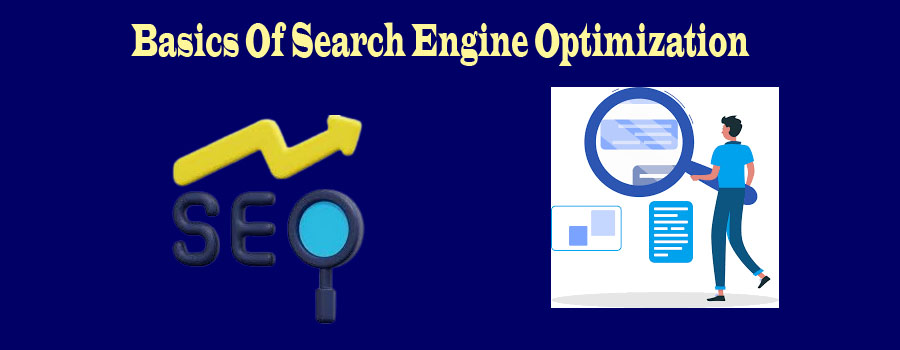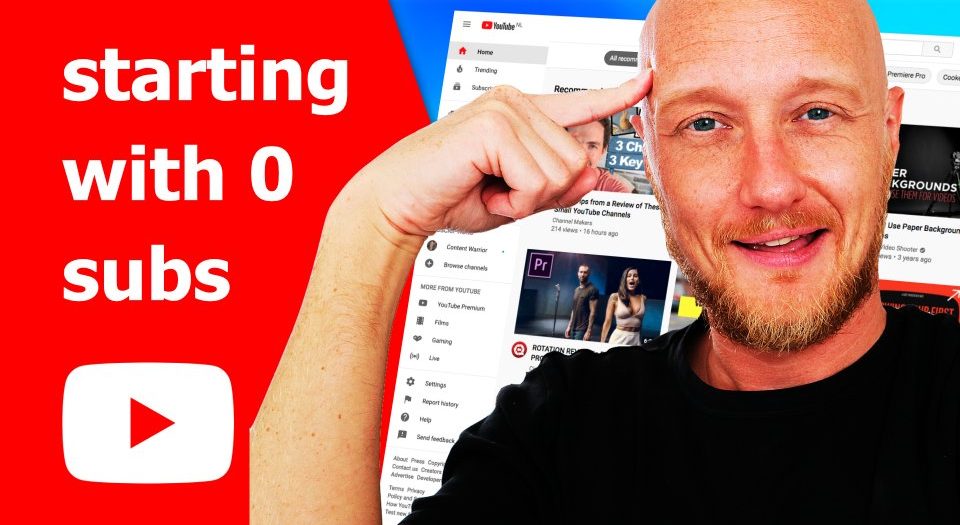SEO stands for search engine optimization (SEO) in marketing. It focuses on improving website visibility and ranking on search engine results pages (SERPs) through various strategies and techniques.
It involves optimizing website content, enhancing the user experience, and building quality backlinks to increase organic traffic and attract potential customers. SEO helps businesses reach their target audience effectively and generate higher conversions by appearing on top of search engine rankings.
By implementing SEO practices, businesses can improve their online presence, authority, and credibility, leading to increased brand awareness and growth opportunities. It is essential for modern marketing strategies to incorporate SEO to stay competitive in the digital landscape and achieve long-term success.

Understanding The Basics Of Seo
When it comes to marketing your business online, understanding the basics of SEO is essential. SEO, which stands for Search Engine Optimization, is the practice of improving your website’s visibility and ranking on search engine result pages. In simple terms, SEO helps search engines like Google understand your website’s content and purpose, making it easier for them to match it with relevant user queries.
Seo Defined: What It Means In Marketing
SEO, or Search Engine Optimization, is a fundamental aspect of digital marketing strategies. It involves optimizing your website’s design, content, and structure to enhance its visibility on search engine result pages (SERPs) and attract organic, targeted traffic. By understanding how search engines determine and rank the relevance and quality of your website, you can make data-driven decisions to improve your online presence and increase your chances of reaching your target audience effectively.
The Role Of Seo In Digital Marketing Strategies
The role of SEO in digital marketing strategies is paramount. It acts as the backbone, ensuring your website is easily accessible and appealing to both search engine crawlers and human users. With effective SEO practices in place, your website can achieve higher organic rankings, leading to increased visibility, credibility, and ultimately, more conversions. By optimizing aspects like keywords, meta tags, website speed, and user experience, you can successfully attract and engage your target audience while outranking your competitors in the search results.
Seo Vs. Other Marketing Techniques: A Comparison
When it comes to marketing your business, there are various techniques available, each with its own benefits and limitations. Let’s compare SEO with other marketing techniques:
| Marketing Technique | Advantages | Limitations |
|---|---|---|
| Pay-Per-Click Advertising (PPC) |
|
|
| Social Media Marketing |
|
|
| Email Marketing |
|
|
While all these techniques have their merits, SEO offers a cost-effective, long-term solution for sustainable growth and visibility. Unlike PPC, it doesn’t rely on ongoing budget allocations, and unlike social media and email marketing, it doesn’t require constant content creation. Instead, through strategic optimization and continuous monitoring, SEO can generate organic traffic and improve your website’s visibility over time, leading to higher conversion rates and a stronger online presence.
Basics Of Search Engine Optimization
In the world of digital marketing, SEO – or search engine optimization – is essential for any business looking to increase its online visibility and attract organic traffic to its website. But what does SEO really stand for in marketing? It is a multifaceted strategy that involves optimizing various aspects of a website to improve its search engine rankings. One crucial element of SEO is the use of keywords. Keywords are specific terms or phrases that people use when searching for information on search engines like Google.
H3the Significance Of Keywords In Seo/h3
Keywords play a significant role in SEO because they act as a bridge between what people are searching for and the content businesses have to offer. When you align your website content with relevant keywords, search engines can better understand what your website is about, increasing the chances of it being displayed to users searching for related terms. By strategically incorporating popular and relevant keywords, you can optimize your website for search engines and improve your organic rankings.
H3keyword Research: Finding The Right Keywords For Your Business/h3
Before implementing keywords, it’s crucial to carry out comprehensive keyword research. This involves identifying the terms and phrases that your target audience is using to search for products or services in your industry. By understanding the search intent of your potential customers, you can uncover valuable insights into their needs and preferences.
Keyword research tools can help you identify popular keywords, analyze their search volumes, and assess their competitiveness. Additionally, examining your competitors’ keyword strategies can provide valuable insights and help you refine your own keyword selection process. Remember, finding the right keywords involves striking a balance between relevance, search volume, and competition.
H3implementing Keywords Effectively In Website Content/h3
Once you’ve identified the right keywords for your business, it’s important to implement them effectively within your website content. This ensures that search engines understand the relevance of your content to specific search queries. To effectively implement keywords:
- Integrate keywords in your page titles, meta descriptions, and URL structures.
- Create high-quality, keyword-rich content that provides value to your audience.
- Use header tags (H1, H2, H3, etc.) to structure your content and signal the importance of keywords.
- Include keywords naturally throughout your content, avoiding keyword stuffing.
- Optimize images with keyword-rich alt text and file names.
- Ensure your website is mobile-friendly, as mobile optimization is crucial for SEO.
Remember, adhering to HTML syntax and best practices when using header tags not only helps search engines understand the structure of your content but also improves the overall user experience. By implementing keywords effectively, you can attract targeted organic traffic to your website and increase the visibility of your business in search engine results pages.
Optimizing On-page Elements
SEO stands for search engine optimization in marketing, a method that involves optimizing on-page elements to improve a website’s visibility and rank higher in search engine results. It focuses on factors like keywords, meta tags, URL structure, and content relevance to drive organic traffic and enhance overall online presence.
By optimizing these elements, businesses can attract more targeted visitors and increase their chances of conversion.
Title Tags, Meta Descriptions, And Headers: How They Impact Seo
When it comes to optimizing on-page elements, there are several critical components that directly impact your website’s SEO performance. In this section, we will explore the importance of title tags, meta descriptions, and headers, and how they contribute to improving your website’s visibility in search engine rankings.
Title Tags
Title tags are HTML elements that define the title of a webpage. They serve as the clickable headline that appears on search engine results pages (SERPs) and in web browsers. Title tags play a crucial role in SEO, as they not only communicate the content of the page to both users and search engines but also determine its relevancy and ranking. When creating title tags, it is important to use relevant keywords that accurately describe the content on the page. Including your target keywords towards the beginning of the title tag can have a positive impact on SEO. However, it is crucial to maintain a balance between keyword optimization and making the title tag engaging and compelling for users.
Meta Descriptions
Meta descriptions provide a brief summary of the webpage’s content and appear below the title tag on SERPs. While they do not directly impact SEO rankings, they play a critical role in enticing users to click on your website. A well-crafted meta description should be concise, persuasive, and contain relevant keywords. Though Google doesn’t consider meta descriptions as a ranking factor, a compelling meta description can result in higher click-through rates (CTR), indicating to search engines that your webpage is valuable and relevant to users. Remember, meta descriptions should be unique for each page, accurately reflecting the content within and encouraging users to visit your site.
Headers
Headers, also known as header tags or H-tags, are HTML elements that organize the structure of your webpage’s content. Headers are used to create hierarchy and improve readability by breaking up text into smaller, easily scannable sections. In SEO, headers play a crucial role not only in improving user experience but also in providing search engines with context about the content on your page. Properly utilizing header tags, such as H1, H2, H3, etc., can help search engines understand the relevance and subject matter of your content. When using headers, it is important to adhere to HTML syntax and hierarchy. The H1 tag should be used for the main page title, while subsequent headers (H2, H3, etc.) should be used to divide sections and sub-sections of your content. This helps both users and search engines understand the structure and importance of the information on your webpage.
Creating Seo-friendly Urls
In addition to optimizing title tags, meta descriptions, and headers, creating SEO-friendly URLs is crucial for on-page optimization. URLs should be concise, descriptive, and easy for both users and search engines to understand. Here are a few key tips for crafting SEO-friendly URLs:
- Avoid using excessive numbers, symbols, or special characters in your URLs. Instead, use relevant keywords that reflect the page’s content.
- Use hyphens (-) to separate words within your URL, as search engines consider hyphens as word separators.
- Keep your URLs short and meaningful, avoiding unnecessary words or excessive keyword stuffing.
- Ensure that your URLs are easily readable and comprehensible to both humans and search engines.
- Optimize your URLs for specific pages rather than using generic or auto-generated URLs.
The Importance Of Optimized Content And Keyword Density
In addition to on-page elements such as title tags, meta descriptions, headers, and URLs, optimized content and keyword density are essential for successful SEO. To create optimized content, you must identify and incorporate relevant keywords that align with your target audience’s search queries. Sprinkle these keywords naturally throughout your content, keeping in mind that overstuffing keywords can lead to keyword spamming, negatively impacting your SEO efforts. Maintaining an appropriate keyword density is crucial for search engines to understand the focus of your content without compromising its quality or readability. Aim to provide valuable and informative content that addresses the search intent behind the keywords while using them strategically within the text. Remember, each H3 heading in this section should adhere to HTML syntax and hierarchy to maintain proper structure and enhance the on-page optimization of your content.
Building A Solid Backlink Strategy
One of the fundamental aspects of SEO is building a solid backlink strategy. Backlinks play a crucial role in improving your search engine rankings and driving organic traffic to your website. In this section, we will explore the importance of backlinks in SEO, different types of backlinks, and effective link building techniques that can help you achieve better SEO results.
The Importance Of Backlinks In Seo
Backlinks, also known as inbound links, are links from external websites that point to your website. They act as a vote of confidence, indicating to search engines that your website is credible and relevant. Here are a few reasons why backlinks are crucial for SEO:
- Improved search engine rankings: Backlinks are one of the most important ranking factors used by search engines like Google. Websites with a higher number of quality backlinks tend to rank higher in search engine results pages (SERPs).
- Increased organic traffic: When other websites link to your content, it increases the chances of users discovering your website through those links. Backlinks can drive referral traffic, which can lead to more conversions and sales.
- Establishing authority and credibility: Backlinks from reputable and authoritative websites can enhance your website’s credibility and help establish it as an industry leader. This can build trust with both search engines and your target audience.
Different Types Of Backlinks And Their Impact
Not all backlinks are created equal. There are different types of backlinks, and their impact on SEO can vary. Here are the common types of backlinks:
| Type of Backlink | Description | Impact on SEO |
|---|---|---|
| Natural editorial links | Links earned naturally from other websites that find your content valuable without any request or exchange. | High impact. Natural editorial links are highly valued by search engines as they indicate the authority and relevance of your website. |
| Guest blogging links | Links obtained by contributing articles to other websites or blogs within your industry. | Moderate impact. Guest blogging links can be valuable if they come from reputable websites and the content is relevant and of high quality. |
| Forum and blog comments | Links acquired by leaving comments on forums, blogs, or Q&A websites. | Low impact. While these links can contribute to your backlink profile, they are often seen as less valuable by search engines. |
Effective Link Building Techniques For Better Seo Results
To improve your SEO results, it’s important to adopt effective link building techniques. Here are some strategies you can implement:
- Create compelling content: By consistently producing high-quality and unique content, you increase the chances of naturally attracting backlinks from other websites.
- Guest blogging: Seek opportunities to contribute guest posts on reputable websites within your industry. Ensure your content is informative and valuable to the website’s audience.
- Reach out to influencers: Identify influential bloggers, journalists, and industry experts who may be interested in your content. Build relationships with them and request backlinks or collaborations.
- Internal linking: Incorporate internal links within your website to improve user navigation and boost the visibility of specific pages.
- Monitor and disavow toxic backlinks: Regularly monitor your backlink profile and disavow any low-quality or spammy links that may have a negative impact on your SEO.
By implementing these effective link building techniques, you can establish a solid backlink strategy that not only enhances your SEO but also strengthens your website’s overall visibility and authority.
The Role Of User Experience (ux) In Seo
When it comes to SEO (Search Engine Optimization) in marketing, the role of User Experience (UX) cannot be understated. UX refers to the overall experience that a visitor has when they interact with a website or application. It encompasses various factors, such as ease of navigation, page loading speed, mobile responsiveness, and overall user satisfaction. In the realm of SEO, UX plays a crucial role in determining how well a website performs in search engine rankings. In this article, we will explore the impact of UX on SEO and discuss key areas where optimizing user experience can lead to improved search visibility and higher organic traffic.
How Ux Affects Seo Rankings
The user experience is a direct ranking factor for search engines, including Google. Search engines aim to deliver the most relevant and valuable results to their users. Therefore, they prioritize websites that provide a positive user experience. By focusing on improving the user experience, you can create a website that not only appeals to your visitors but also satisfies search engine requirements.
Here are a few reasons why UX matters for SEO:
- When users spend more time on your website and engage with its content, it sends positive signals to search engines. It indicates that your website is relevant and valuable, and search engines are more likely to rank it higher.
- Low bounce rates, which happen when users leave a website shortly after landing, are another crucial factor. If your website has a high bounce rate, search engines may interpret it as a sign that your content is not meeting user expectations. This can result in lower rankings. On the other hand, a lower bounce rate indicates that users find your website helpful and are more likely to engage further, leading to improved SEO rankings.
- Another aspect of UX that affects SEO is the ease of navigation. A well-structured and intuitive website with clear navigation menus and user-friendly URLs makes it easier for both users and search engines to navigate through your content. This improves the overall user experience and plays a role in search engine rankings.
Mobile Optimization: Why It Matters For Seo
In today’s mobile-centric world, having a mobile-optimized website is crucial for SEO success. With the majority of internet users accessing websites on their mobile devices, search engines prioritize mobile-friendly websites in their rankings. If your website is not optimized for mobile devices, it may suffer in terms of search visibility.
Here are a few reasons why mobile optimization matters for SEO:
- Improved user experience on mobile devices: A mobile-optimized website provides a seamless experience for users on smartphones and tablets. It ensures that the layout, content, and functionality are tailored to smaller screens, making it easier for users to navigate and engage with your website. This positive user experience translates into higher SEO rankings.
- Mobile-first indexing: Google has made mobile-first indexing a priority, which means they primarily use the mobile version of a website for indexing and ranking. If your website is not optimized for mobile devices, it can impact your search engine rankings on both desktop and mobile.
- Faster page loading on mobile: Mobile optimization involves optimizing page loading speed for mobile devices, which is crucial for user satisfaction. Slow-loading websites can deter users and lead to higher bounce rates. By optimizing your website for mobile, you can improve page speed and provide a better user experience, leading to improved SEO rankings.
Improving Website Speed And Navigation For Better User Experience And Seo
Website speed and navigation are essential aspects of user experience that directly impact SEO rankings.
Website speed
Having a fast-loading website is crucial for user satisfaction and SEO. Slow-loading websites frustrate users, leading to higher bounce rates and lower search engine rankings. Here are a few ways to improve website speed:
- Optimize image sizes and formats to reduce file sizes without compromising quality.
- Minimize the use of unnecessary plugins or scripts that can slow down your website.
- Enable browser caching to store certain elements of your website locally, reducing the load time for returning visitors.
- Use a content delivery network (CDN) to serve your website’s content from servers closer to your visitors, improving overall loading speed.
Navigation
A well-organized and intuitive website navigation enhances the user experience and makes it easier for both users and search engine crawlers to explore your content. Here are a few tips to improve website navigation:
- Create clear and descriptive menu labels to help users navigate your website effortlessly.
- Include a search bar to allow users to quickly find specific content.
- Ensure that your website architecture follows a logical hierarchy, with parent and child pages organized in a way that is easy to understand.
- Use descriptive and user-friendly URLs that give users an idea of what to expect when they click on a link.
Frequently Asked Questions For What Does Seo Stand For In Marketing
What Is Seo And Why Is It Important For Marketing?
SEO stands for search engine optimization. It is important for marketing because it helps businesses improve their online visibility and attract organic traffic from search engines. By optimizing their website and content for relevant keywords, businesses can increase their chances of appearing in search engine results and reaching their target audience.
How Does Seo Impact Marketing Strategies?
SEO impacts marketing strategies by helping businesses increase their online presence, improve website rankings, and drive organic traffic. By optimizing their website and content for search engines, businesses can attract potential customers who are actively searching for their products or services.
SEO also enhances user experience, builds brand credibility, and can result in high conversion rates.
What Are The Main Components Of Seo In Marketing?
The main components of SEO in marketing include keyword research, on-page optimization, link building, and technical SEO. Keyword research helps identify relevant keywords to target in content and metadata. On-page optimization involves optimizing content, titles, and URLs. Link building involves acquiring high-quality backlinks to improve website authority.
Technical SEO includes improving website speed, mobile-friendliness, and site architecture. By focusing on these components, businesses can improve their website’s search engine rankings.
Conclusion
SEO is an essential component of successful marketing strategies. It stands for Search Engine Optimization, and it involves various techniques to improve a website’s visibility and ranking on search engine results pages. By implementing SEO strategies effectively, businesses can increase their online presence, attract more targeted traffic, and ultimately drive conversions and sales.
So, if you want to stay competitive in the digital landscape, integrating SEO into your marketing efforts is crucial. Start optimizing your website today and reap the benefits of increased visibility and online success.









Write a comment
Your email address will not be published. All fields are required